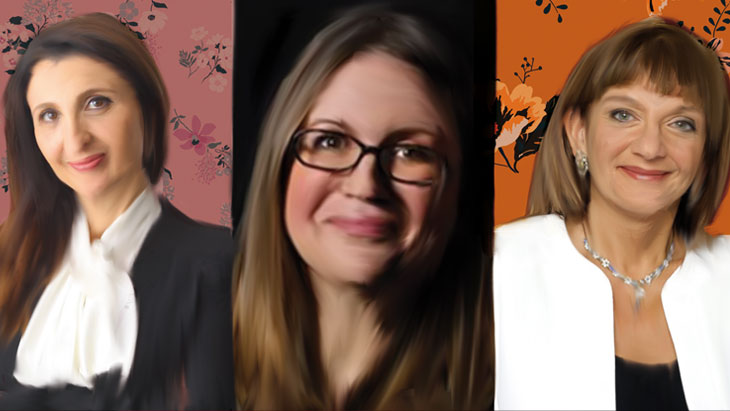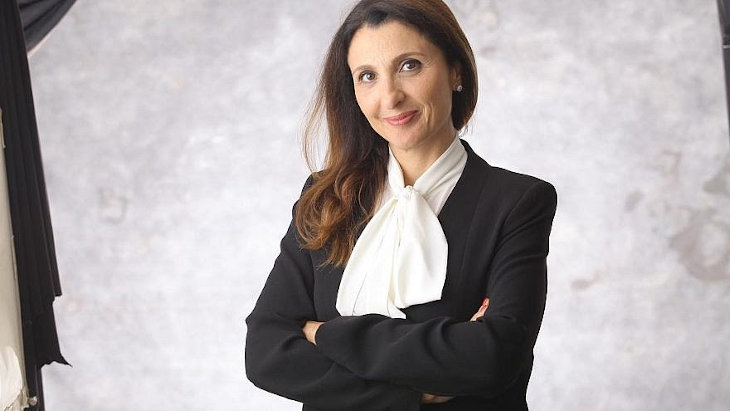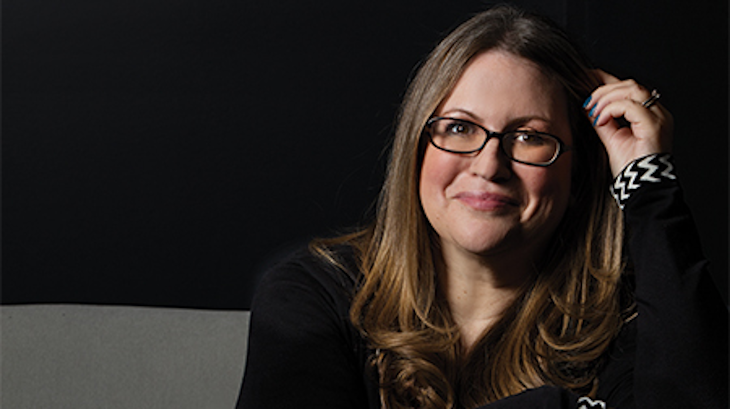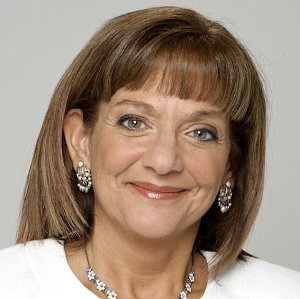 Iran’s Attack on Israel
Iran’s Attack on Israel


13 min read
These women are working to make a difference in their communities – and the world.
Throughout Jewish history, Jewish women have sustained our people, giving us hope and maintaining the high moral and spiritual standards of Jewish communities around the world. Today, Jewish women are continuing this tradition, fighting to improve conditions for others.
Here are three trailblazing Jewish women making a difference today.
 Jerusalem Deputy Mayor Fleur Hassan-Nahoum
Jerusalem Deputy Mayor Fleur Hassan-Nahoum
Fleur Hassan-Nahoum grew up in Gibraltar and made aliyah (moved to Israel) 20 years ago with her husband. “I was a Zionist from the age of 14 when I first visited the Jewish state,” Hassan-Nahoum explained in an Aish.com interview. “To be in a situation where the Jewish people have their own land for the first time in thousands of years, I knew I wanted to be here.”
On their second date, Ms. Hassan-Nahoum told her husband-to-be that she envisioned herself living in the Jewish state. He agreed and the couple moved in March 2001, in the midst of the Second Intifada. Well-meaning friends and relatives pointed out that it seemed too dangerous to move to Israel. “We said if we waited until a good time, that moment will never come,” Ms. Hassan-Nahoum remembers. The couple moved to Jerusalem and have never looked back. “My four children received the gift of being born here. Moving here was the best decision I ever made.”
A lawyer by training, Ms. Hassan-Nahoum worked first as a barrister in Britain, then later expanded her career by working for major Jewish charities, founding her own communications firm, and becoming involved in Jerusalem politics. In 2018, she became deputy mayor of Jerusalem, where she holds portfolios for the Capital’s foreign relations, economic development, and tourism.
“For many people, politics is a very alien thing, a very aggressive thing,” Ms. Hassan-Nahoum notes, acknowledging that there’s some truth in the perception that politics can be a tough business. Ms. Hassan-Nahoum grew up in a political family and was familiar with political life: her father was Sir Joshua Hassan, first mayor and Chief Minister of Gibraltar. Sir Joshua’s long years of public service opened Ms. Hassan-Nahoum’s eyes to the immense good that can be done in a political career. “You can improve people’s lives and move things forward,” she observes. “You can change things.”
As a woman, Ms. Hassan-Nahoum has witnessed sexism first-hand. “Women certainly have to work harder to get anywhere,” she notes. “I think women in politics are underestimated. But when you’re underestimated nobody sees you coming.” In her own career she recalls a rival politician telling her that she wouldn’t last long in politics. Years later, she’s still working in politics, working hard to improve the lives of Jerusalemites while the male politician who predicted the end of her career is no longer in public office.
Ms. Hassan-Nahoum believes it’s vital that women work in politics. “Women bring a more consensus-driven decision making style to politics and bring an important perspective that’s necessary to make policy.”
Ms. Hassan-Nahoum points to her previous work as head of a committee governing Jerusalem’s preservation of heritage sites as an example of the skills female politicians can bring to the table. “Jerusalem is one of the oldest cities in the world. This is a tense committee, balancing economic interests and historical preservation interests. I’m proud to say that never in my whole time as head of this committee did we pass a decision that wasn’t a consensus,” something that wasn’t the norm.
Moving to Israel ended her legal career but not her desire to help others. “I didn’t speak a word of Hebrew at first,” she explains. Since so much of legal work is dependent on understanding the nuances of language, Ms. Hassan-Nahoum switched gears, leaving the legal field and working for non-profits instead. “When I went into the non-profit sector, I saw it as another way of advocating – I was advocating for marginalized groups in society. I’ve always used my voice to strengthen other people.”
In the past year, as the global pandemic has ravaged the world, Ms. Hassan-Nahoum has turned Jerusalem’s pandemic response into a model for the world. “We created a task force of volunteerism,” she explains, tapping into Jerusalem’s dynamic network of volunteer organizations to recruit nearly 20,000 people to step up and help during the crisis. Volunteers phoned home-bound people to check in, delivered food and medicines to those in need, brought games to families who were quarantining at home, and raised money for emergency food and other items. Ultimately, the volunteer initiative reached 70,000 Jerusalemites: “Nobody who needed help didn’t get help” if they requested aid from the municipality during Israel’s lockdown, Ms. Hassan-Nahoum notes with pride.
Ms. Hassan-Nahoum’s advice to other women who want to work in public service is to seize opportunities to aid others. “I’m a religious woman,” she explains. “I have a lot of faith that when God gives you the opportunity to do a mitzvah and step up to the plate – helping your neighbor, helping your city, helping your street, or school – whatever God gives you the opportunity to help others – you step up to the plate and just do it.”
 Miriam Ament
Miriam Ament
Fifteen years ago, Miriam Ament, a successful professional with a demanding job, was hospitalized three times for depression. Shockingly, she found that instead of extending support and concern, as is typical when a friend suffers from a serious illness, some of her friends and acquaintances were judgmental instead, and seemed to view her illness as something to be ashamed of.
“During my second hospitalization, one of my best friends called and said ‘I only want to talk to you when you are happy’,” Ms. Ament recalls. She wound up never speaking with that friend again.
For years, Ms. Ament didn’t share her experiences with depression with many people. Then seven years ago a coincidence led Ms. Ament to an unexpected lunch date with a celebrity. Ms. Ament’s entered a charity auction and won a lunch with the actress Glenn Close. Ms. Close is outspoken about mental health issues and that lunch changed Miriam’s life.
“I told her about my mental health journey. I realized that if I could tell Glenn Close – a total stranger – about my experiences with depression, then I could tell other people.”
“Research shows that one of the best ways to eliminate mental health stigma is coming into contact with people with a lived experience of mental health concerns,” Ms. Ament notes. She realized that if she were to open up about her own experiences she could help de-stigmatize mental illness. “By opening up I realized I could really have an impact.”
At the time Ms. Ament was working managing large-scale projects for a large law firm. This demanding job gave her the tools and experience necessary to start a not-for-profit. “It also helped my realize that I could do this.” In 2014 Ms. Ament founded No Shame On U, a charity dedicated to “eliminating the stigma associated with mental health conditions and raising awareness in the Jewish community and beyond,” with the goal of helping people who need it, provide support and education to family members and friends.
The National Institute of Health estimates that nearly one in five Americans live with a mental illness. A 2017 study found that two thirds of people in Britain experienced mental ill health at some point in their lives. The need for an organization supporting those facing mental health struggles – and de-stigmatizing mental health in the community – was sorely needed.
In the past year, with the coronavirus pandemic shutting down much of the world and negatively impacting so many people’s mental health, No Shame On U has grown in scale, filling a crucial need. Based in Chicago, No Shame On U’s clientele has expanded greatly during the pandemic, now reaching people across the United States and internationally.
“Especially now, in pandemic times, we’ve been reaching people all over the world,” Ms. Ament notes. Offerings include online check-in sessions for vulnerable teens, programs geared for people who live alone, a weekly support group for people over fifty, teen awareness groups and mental health forums, mindful yoga and art classes, online presentations by experts, blog posts and daily social media updates about mental health. No Shame On U is currently offering “double or triple” the amount of programming it did a year ago, before the pandemic upended so much of life. Over 115,000 people currently receive the organization’s daily social media posts and updates, a huge increase in the number of subscribers before the pandemic began.
No group of people is immune to the harmful mental health effects of pandemic. Young people have missed out on the socialization and milestones of in person school. Many people are suffering after losing their jobs. Older people living alone have suffered from extreme isolation. “Unfortunately the list goes on and on,” Ms. Ament observes. Strategies for improving mental health, resources and information can be found at www.noshameonu.org. (The tab “resources” offers phone numbers for crisis hotlines if you are experiencing a mental health crisis right now.)
Ms. Ament has some advice on how we can all work to make the world a better place, no matter what our abilities or backgrounds. Fifteen years ago she never would have pictured herself running a major mental health organization. “You never know how who you meet can change your life; you never know where life will take you. Be open to whom you meet and how you connect with them and how they connect with you.”
 Baroness Ros Altmann, Ph.D.
Baroness Ros Altmann, Ph.D.
Baroness Ros Altmann began her career as an academic, studying pensions and end-of-life issues. After a career in corporate finance, she served as Britain’s Minister of State for Pension from 2015 to 2016. (She was made a Baroness and appointed to the House of Lords in 2015.) She’s spent much of her career exposing financial injustice and promoting pensions reform. In a recent Aish.com interview, Baroness Altmann highlights her vital work helping create Britain’s Pension Protection Fund and Financial Assistance Scheme – both of which protect British workers’ pensions – as some of her proudest professional achievements.
An Orthodox Jew, Baroness Altmann has prioritized her family and her religious faith throughout her long and distinguished career. “I have never hidden my religion or religious values,” she notes, and “decided to move into self-employment when I had my three children, so that I could spend time with them while they were growing up, rather than...missing out on their early years.”
“I would always stop work for Shabbat and Yom Tov,” she recalls, “and quite frankly, I don’t know how I could survive without this ‘downtime’ and time to relax with family and friends. I thank God every Friday for the wonderful gift of Shabbat. I think professionals could all benefit from realizing that the world does not come to an end if you switch off your phone and computer for twenty five hours and think of other things than work.”
Baroness Altman credits her Jewish faith and values with leading her to work on behalf of poorer workers and the elderly in Britain. “I believe that my commitment to social justice and concern for those in society who may be less well off, or least able to fend for themselves, or just need some extra help, comes from my Jewish beliefs and values.”
Growing up in a traditional Jewish home, Ros remembers her mother as the family’s driving force in religion, attending synagogue each Shabbat and ensuring that the family enjoyed a beautiful Shabbat dinner. Ros became even more religiously observant as an adult, and has been outspoken about her embrace of Jewish life. She’s publicly explained that she follows the mitzvah (commandment) of donating a portion of her salary to charity: she gives away fully 20% of her salary.
“I may have been very lucky,” she notes, “but I truly have not found that being observant has posed any problems in achieving high office and in rising through the ranks when I was in the City (London’s financial hub). I have always told people before taking on any role that I am an Orthodox Jewish woman and that means there are certain constraints that I have to work around.”
“A few weeks each year I will need to finish work on a Friday afternoon and I am never available to work on a Friday evening or Saturday up to nightfall. If that is something that people are not comfortable with, I would rather not work there, so I want them to know beforehand. I have never found it a problem. When I was Minister, the support for my religious beliefs could not have been stronger.”
Baroness Altmann’s parents escaped Nazi Europe, and much of her family was wiped out. Growing up with this knowledge has shaped her outlook. She is alarmed at the rising levels of anti-Jewish hatred she’s observed. “We have to guard against a resurgence of hatred and stand up against both anti-Semitism and other forms of racial hatred where we can,” she cautions.
“There are also internal threats to our community, from splits between religious factions,” Baroness Altmann notes. “It always upsets me so much when I see one group of Jewish people criticizing or vilifying others, especially in public. We have enough enemies outside, surely we don’t need to fight each other. Let’s each respect each other and if we don’t agree with different groups, we are still all Jews.”
When Ros Altmann was made a Baroness in 2015, she got to choose a motto for her coat of arms. She selected a Hebrew quote from the Torah: Ve’Asita Hayashar v’HaTov: “You shall do what is fair and good (in the eyes of God)” (Deuteronomy 6:18). “I try to live by this motto.”
Baroness Altmann has a message to her fellow Jewish women on International Women’s Day – and every day. “I would like to suggest to all Jewish women that they should feel proud to make a difference,” she says. “Believe in yourselves and make a contribution in whatever way you can. You can combine family, religion and high achievement if you want to, and you can also contribute to community life.”
These three trailblazing women are models for Jewish women. Their work ethic, commitment to Jewish values and their determination to do good on behalf of others is a powerful reminder of what it means to be a Jewish woman: always working to better ourselves, our families, our communities, and the world.
